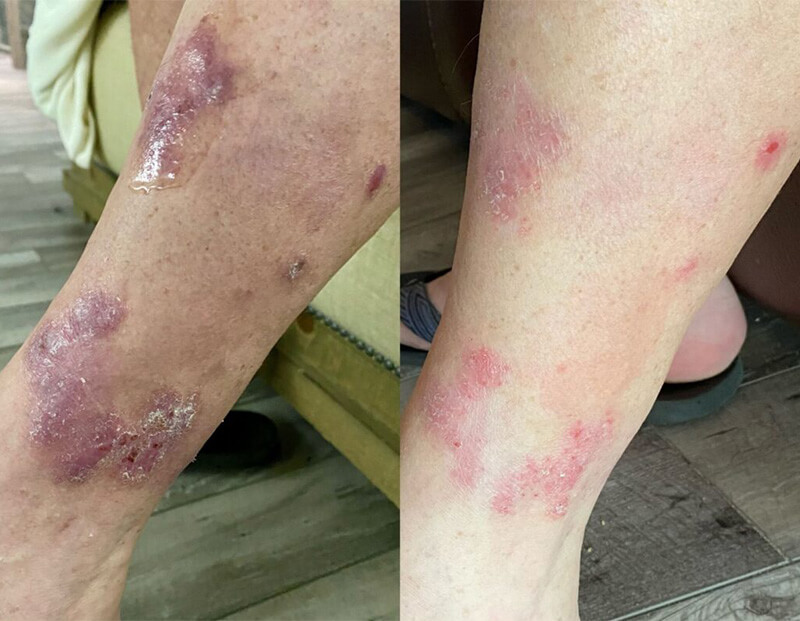
Atopic dermatitis (eczema) is a condition that makes your skin red and itchy. It’s common in children but can occur at any age. Atopic dermatitis is long-lasting (chronic) and tends to flare periodically. It may be accompanied by asthma or hay fever. No cure has been found for atopic dermatitis but treatments and self-care measures can relieve itching and prevent new outbreaks. For example, it helps to avoid harsh soaps, moisturize your skin regularly, and apply medicated creams or ointments.
Atopic dermatitis most often begins before age 5 and can persist into adolescence and adulthood. For some people, it flares periodically and then clears up for a time even for several years. Healthy skin helps retain moisture and protects you from bacteria, irritants, and allergens. Eczema is related to a gene variation that affects the skin’s ability to provide this protection. This allows your skin to be affected by environmental factors, irritants, and allergens.
Medications and Treatments
- Injectables. The FDA has recently approved a new, injectable biologic (monoclonal antibody) called dupilumab (Dupixent). It is used to treat people with severe disease who do not respond well to other treatment options. This is a newer medication so it doesn’t have a long track record in terms of how well it helps people. Studies have shown it to be safe if used as directed. It is very expensive.
- Oral drugs to control inflammation. For more severe cases your doctor may prescribe oral corticosteroids such as prednisone. These drugs are effective but can’t be used long term because of potentially serious side effects such as heartburn, nausea, vomiting, acne, weight gain, fluid retention, and high blood pressure.
- Creams to control itching and help repair the skin. Your doctor may prescribe a corticosteroid cream or ointment. Apply it as directed after you moisturize. Overuse of this drug may cause side effects including thinning skin. Other creams containing drugs called calcineurin inhibitors such as tacrolimus (Protopic) and pimecrolimus (Elidel) affect your immune system. They’re used by people older than age 2 to help control the skin reaction. These drugs have a black box warning about a potential risk of cancer but the American Academy of Allergy, Asthma & Immunology has concluded the risk-to-benefit ratios of topical pimecrolimus and tacrolimus are similar to those of most other conventional treatments of persistent eczema and that the data doesn’t support the use of the black box warning.
- Drugs to fight infection. Your doctor may prescribe an antibiotic cream if your skin has a bacterial infection, an open sore, or cracks. He or she may recommend taking oral antibiotics for a short time to treat an infection.
Why deal with these potential short and long-term side effects while still suffering? Our suggestion, try a potent CBD topical designed specifically for eczema. No injections. No steroids. No antibiotics. No immune suppression. No side effects. Apply as often as needed. Stops itching immediately and helps to heal. If you know somebody dealing with eczema please pass along this information.
